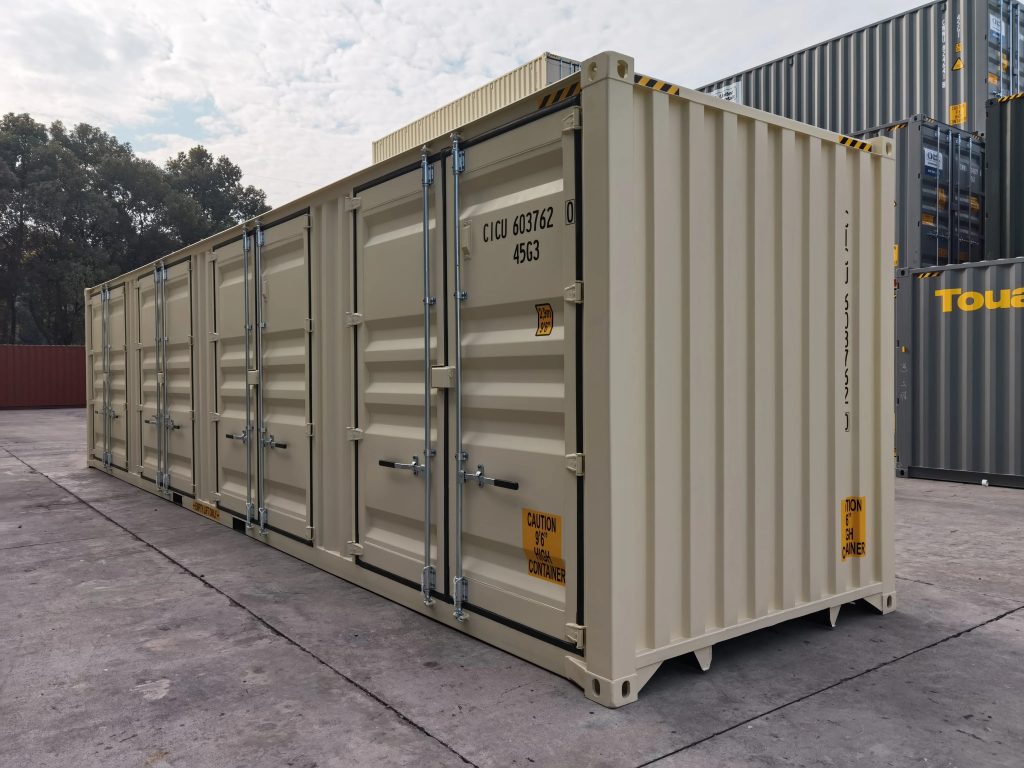Who Is Responsible For An Shipping Container Housing Budget? 12 Ways To Spend Your Money
The Rise of Shipping Container Housing: An Innovative Solution for Modern Living
As metropolitan populations continue to swell and traditional housing ended up being progressively unaffordable, innovative alternative solutions are getting traction. One of the most ingenious solutions is shipping container housing. This method repurposes old shipping containers into practical home, striking a balance between affordability, sustainability, and special aesthetic appeals. In this blog post, we will check out the advantages of shipping container homes, how they compare to conventional housing, and offer responses to often asked questions.
The Benefits of Shipping Container Housing
Shipping container homes provide numerous advantages, which can be summed up in the table listed below:
Benefit
Description
Price
Lower construction expenses due to the availability of used containers.
Sustainability
Eco-friendly alternative, minimizing waste by repurposing containers.
Durability
Strong steel structure makes them resistant to various ecological elements.
Modular Flexibility
Easily expandable and customizable layouts as they can be stacked or integrated.
Quick Construction
Lowered building time compared to standard homes.
Portability
Can be transferred if required; perfect for temporary living scenarios.
Unique Aesthetic
Distinct commercial appearance that can be individualized with innovative designs.
Affordability
One of the most compelling reasons to consider shipping container housing is its cost-effectiveness. A used shipping container can cost anywhere from ₤ 1,500 to ₤ 5,000, depending upon its condition and area. This is significantly lower than traditional housing, making it an appealing alternative for newbie buyers and those on a budget.
Sustainability
With an increasing focus on sustainability, shipping container homes align completely with environment-friendly practices. By repurposing containers that may otherwise sit unused or end up being scrap metal, homeowners can lower their carbon footprint. Furthermore, many shipping container homes use green innovations such as solar panels and rainwater harvesting systems.
Durability
Shipping containers are built to sustain extreme weather conditions and heavy loads throughout transport. Their steel structure is resistant to termites, mold, and fire, making them a safe and lasting option for housing. Shipping Container Delivery translates into lower upkeep costs gradually.
Modular Flexibility
Shipping container homes are flexible in design. Homeowners can select to stack containers or link them side-by-side, creating customized areas matched to their needs. This modular approach allows for simple expansion as households grow.
Quick Construction
Conventional homes can take several months or even years to build, however shipping container homes can typically be finished in just a couple of weeks, thanks to their pre-fabricated nature. This quick construction indicates that individuals can move into their homes much quicker.
Portability
Unlike conventional homes that are fixed to an area, shipping container homes can be transferred if required. This makes them an attractive choice for those who desire flexibility or plan to travel.
Unique Aesthetic
The industrial appearance of shipping containers provides itself to special architectural designs that stand out from standard homes. With proper insulation and completing touches, these homes can be transformed into elegant, modern home.
Comparing Shipping Container Homes and Traditional Homes
When assessing housing alternatives, it's vital to think about various factors. The table listed below highlights some crucial distinctions in between shipping container homes and standard homes:
Characteristic
Shipping Container Homes
Traditional Homes
Cost
Normally lower, starting around ₤ 30,000
Greater, frequently surpassing ₤ 200,000
Construction Time
Fast, weeks to a few months
Prolonged, a number of months to years
Resilience
Extremely long lasting; resistant to different risks
Durable, but more prone to weathering
Design Flexibility
Extremely adjustable and modular
Traditional designs, limited in customization
Ecological Impact
Environmentally friendly; decreased waste
Environmental effect differs based on materials
Zoning and Regulations
May face zoning difficulties due to non-traditional status
Generally follows recognized building codes
Regularly Asked Questions (FAQ)
1. Can I finance a shipping container home?Yes, numerous
loan providers are beginning to offer financing options for shipping container homes. However, it's vital to inspect regional regulations and guarantee that your home meets building codes to assist in the lending process.
2. Are shipping containers insulated?Shipping containers
are not insulated by default. Adequate insulation, such as spray foam, stiff foam board, or traditional insulation materials, is crucial for temperature control and energy effectiveness.
3. How do I discover a shipping container home builder?Research local home builders concentrating on container homes and inspect reviews or case studies of their previous jobs. Networking with container home communities online can also supply suggestions. 4. Do I need an authorization to develop a shipping container home?Most areas need structure permits, so it's vital to consult your regional zoning and structure department before starting construction. 5. Are shipping containers safe to live in?Absolutely! Once properly modified and fitted with necessary systems(plumbing
, electrical, and HVAC), shipping container homes can be simply as safe as conventional homes. Shipping container housing is an innovative response to modern housing difficulties. By providing price, sustainability, sturdiness, and distinct design opportunities, this approach of construction is getting interest from different demographics— particularly millennials and those looking for a minimalistic lifestyle. As more individuals and families explore this alternative living choice, it is clear that shipping container homes represent a prospective solution to modern-day housing requirements. 